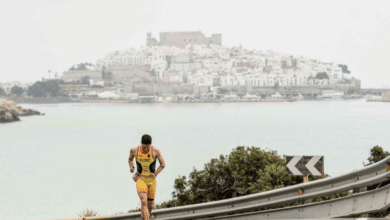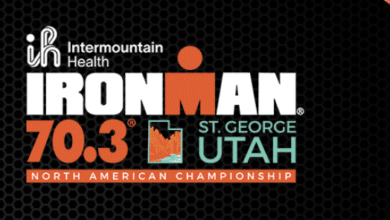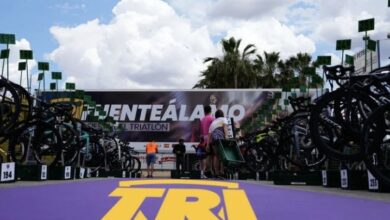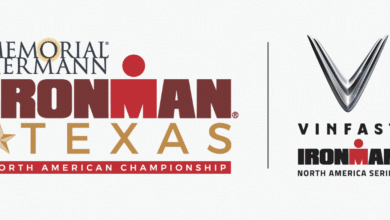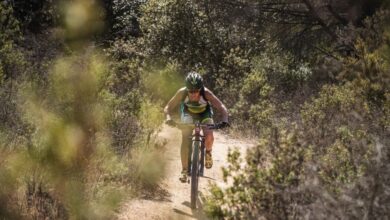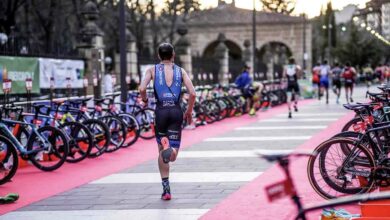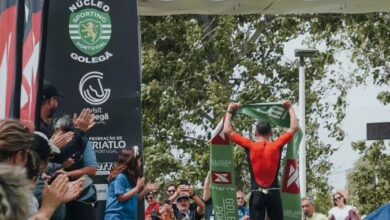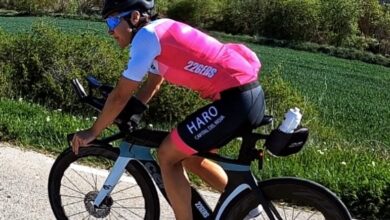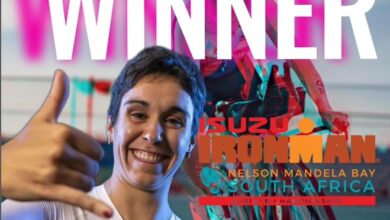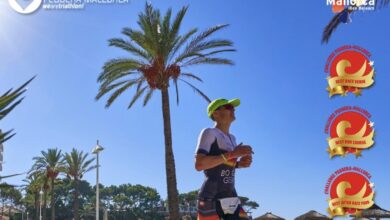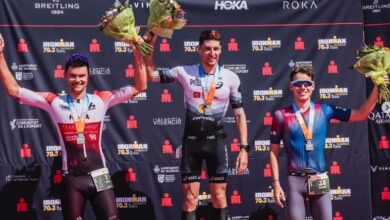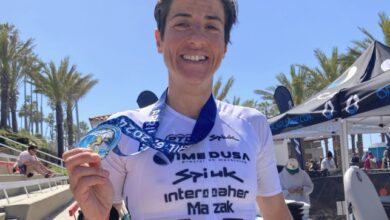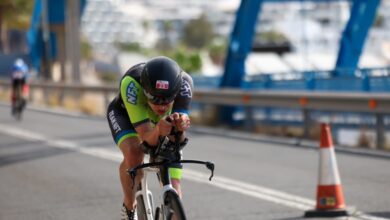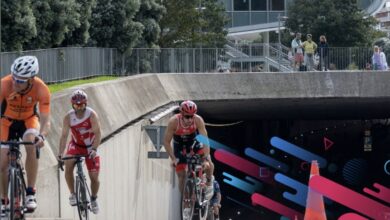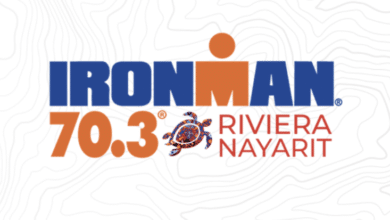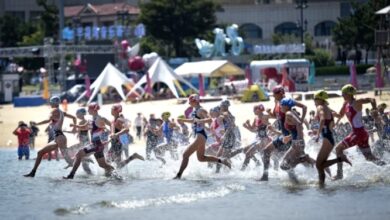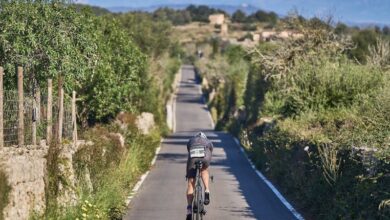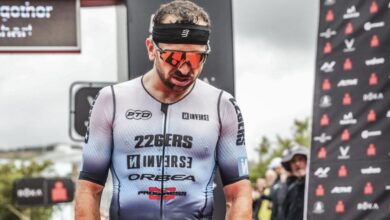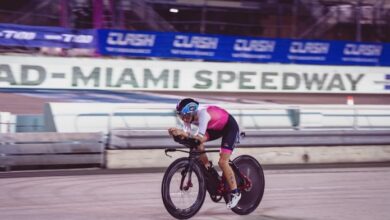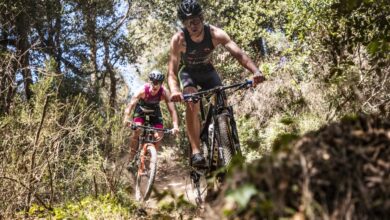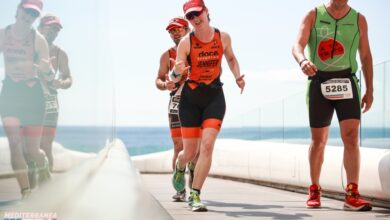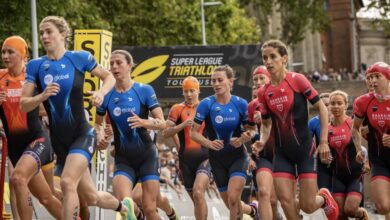Interview with Raúl Mico, paratriathlete pioneer of the CD Avant-Moncada
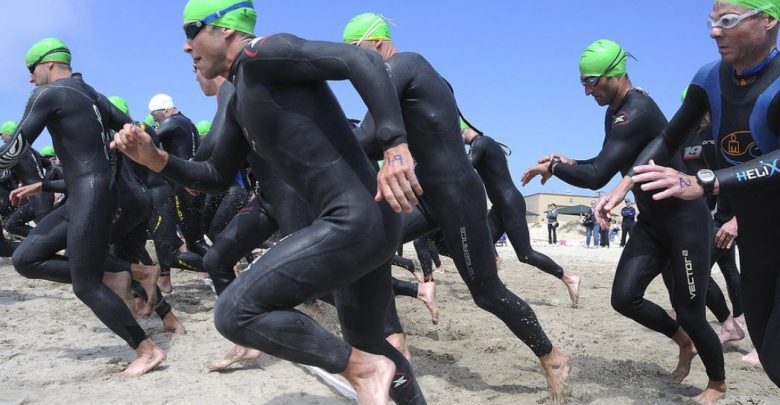
Raúl Micó Valera is a paratriathlete with achondroplasia, belonging to the CD Avant-Moncada club and competes in the TRI8 category.
Your coach is Emilio Aguayo Mateos, father of Emilio Aguayo Muñoz, one of the best triathletes in the Valencian Community. Raúl lives in Valencia, is 36 years old and works in the technical and logistics department of Aznar Frio, a company that provides refrigeration equipment for transportation. He is a Level I triathlon trainer and a paratriathlon specialist technician.
Hello Raúl, good morning. How were your beginnings in the sport and specifically in Paratriathlon? How many years have you been competing in Paratriathlon?
I have been practicing sports since I was 23 years old, I originally signed up for a gym with the simple purpose of losing a bit of weight and keeping fit, at three years old a gym member who saw me running regularly on the tape encouraged me to participate In a popular race, I liked the experience so much that I got into the world of running, during four five years I participated in multiple popular races, big funds, half marathons and mountain races.
At the end of the year 2012 in a half marathon I met my Avant colleagues, they told me that they belonged to a triathlon club and that the main objective of this was to promote triathlon in people with disabilities, the idea I liked, I decided to join the club and I started training with them. This is my fourth season competing in paratriathlon.
How is it usually a week of your kind, combining your work, training and work in the CD Moncada-Avant school?
It is usually busy at the same time organized, I work in a split-day air conditioning company, I enter the 8 in the morning, I go to the 13: 30 and go back from 15: 30 to 18: 30.
During the week I do not have too much time to combine work, with my training and those of the paratriathlon school. I usually train 12 / 14 hours a week, paratriathlon is a sport that excites me and excites me, so I always take time for at least one training session per day, the days I have double training session I try to train in the half-day break.
On weekends I have more free time when I usually do longer runs or transitions. You have to find the balance because you also have to dedicate time to family, friends and rest.
You have run many sprint and Olympic triathlons ... and last year you gave the jump to the Average Distance. How was that competition?
This is my fourth season doing paratriathlon, sprint distance between aquatlones, duathlons and triathlons that I will have done about thirty competitions. Olympic triathlons or similar distance six, this is the distance that I like the best and best suits my conditions.
Last year in Gandía I made my first half distance triathlon, what I like about triathlon is that you have a wide variety of distances and formats to consider new challenges. I consider myself a slow triathlete and for me the personal challenge and the way to put myself to the test is to increase the distance. The experience was impressive, when I started in the triathlon I never imagined I could do a medium distance triathlon, but little by little I got hooked, with perseverance and effort, everything is achieved.
As I said before you have to find the balance between work, training, family and friends, if you know how to fit the puzzle, everything can be achieved. On the other hand I am lucky to have the unconditional support of my family and friends without them everything would be more complicated. Of course not forgetting the support of my coach and friend Emilio Aguayo Mateos, without any of this would be possible, is always willing to spend your time and support me in everything that I propose, I'm really lucky to have him by my side.
And the jump to Ironman, do you think about it?
I enjoy every moment, I have enjoyed each of the distances that I have competed and I hope to continue doing it for a long time. Who knows if one day I'll do an Ironman, maybe the most popular would be to say yes, but I do not know if it's viable without breaking the puzzle and the balance that we talked about before. An Ironman are big words and requires many hours of training, today is unfeasible, who knows in the future, hopefully!
Currently competes nationally in the TRI8 category, which is currently not recognized by the ITU. We know that you have been struggling for years to be recognized intentionally. At what point are these efforts at present?
Well it is complicated, in Spain only my brother and I compete in this category, we must create the need and once created make a proposal to the ITU and it recognizes our category.
A few years ago we could not compete or at the regional level, after making several proposals the Valencian triathlon federation and the FETRI have put their part to create a category and be able to compete at a national level. This is the first step, hopefully in the future the athletes of short stature can compete internationally and have the same opportunities as the rest.
How many paratriathletes with achondroplasia are you in Spain? How can we encourage them to increase their participation in triathlon?
Paratriathletes that my brother and I know. There is an association of athletes of short stature SPTB, last year some members of this association participated in the triathlon of Valencia with two relay team, that is the way, we must be seen and compete as much as possible so that people are encouraged .
In your CD Avant-Moncada club you have a wide representation of paratriathletes, both in categories of adults and children. How are the training sessions with the children?
They are very dynamic, you have to have imagination to design or adapt the training that can be done in a conventional school. I always have a premise, what matters is the objective and what you want to achieve, you just have to look for the way to achieve it.
On the other hand this year is the first season that we do it in a totally inclusive way, all children with and without disabilities share the training, this is a plus of motivation for all.
What makes triathlon practice for children with some type of disability?
In our group we are very fortunate, these children are made of a special paste, I think they will be able to get everything they propose, they spread their desire to excel to all the members of the school and the team.
I think that when they do triathlon they forget about the disability they have, if they are on wheelchairs, they have cerebral palsy or any other disease, when they train and compete they are one more and that is what really matters.
The material used in paratriathlon is often very specific and expensive. Do you have any type of aid to finance the acquisition of this material? In case there are people who read the interview and want to collaborate, how can they do it?
As you said, it is very specific and expensive, I think it should be much more accessible for all children who have a disability, since there are many benefits of sports practice both physically and psychologically.
This year we have received a project that we presented through a partner of the club, Marta Sebastiá, Marta works for a company that in turn collaborates with the DBL foundation, thanks to this project we have been able to acquire two athletic chairs, two tricycles, a runbike and equipment for the whole school.
We also have to thank the support of El Cantero de Letur and the Moncada Sports Center (CDM).
In El Cantero they have always opted for our project and thanks to them we were able to start up, pay for installations, technicians, equipment, equipment ... without their help everything would have been much more complicated.
Finally, could you tell us any anecdote or curious situation that you have had during these years that you have been doing paratriathlon?
I remember three years ago in a Spanish aquathlon championship, we coincided with Javier Gómez Noya, I was looking at him as amazed, he had just competed on the same stage as the best triathlete of all time. I was hesitating to ask for a photo, when he realized it, he came over to greet me, congratulate me and take a picture together.
Thank you very much for the interview, it has been a real pleasure for me. We wish you the best.
Thanks to you, greetings!
There are no previous results.







